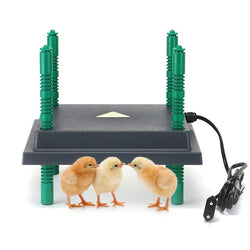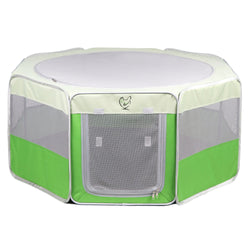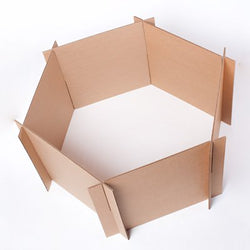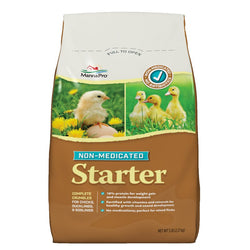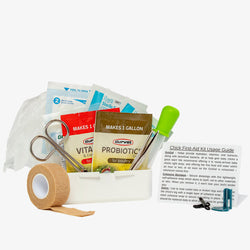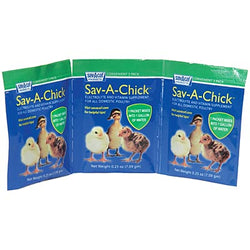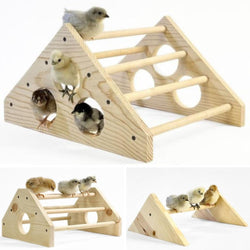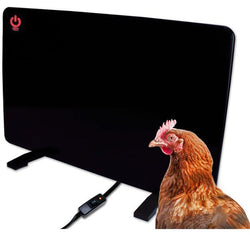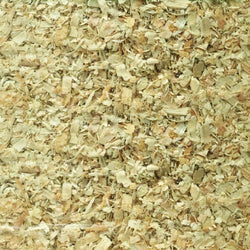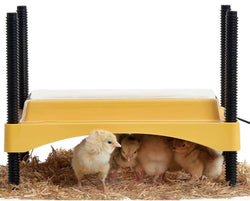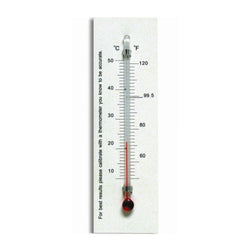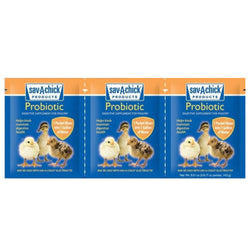What can I do to reduce the risk of my birds getting sick with Salmonella or another illness?
Back to blog
The easiest thing to do is simply to provide your birds with safe, roomy, clean conditions. Research has shown that a diet of whole grains and seeds is associated with decreased Salmonella colonies -- so start there! We offer these treats that fit the bill:
Farmer's Helper Optimal ForageCake Supplement
Sunflower Sensation
Organic Chicken Crack
Sounds easy. Too easy, right? Especially since, if you're even reading this, you're probably already a responsible chicken owner concerned with providing your flock the best care you can... so you've undoubtedly provided lots of space and clean conditions to begin with.
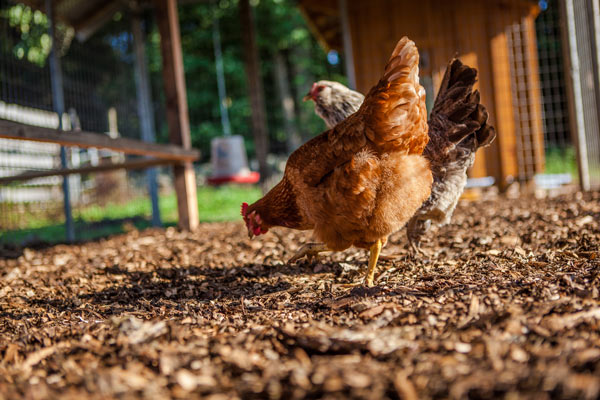
But consider this: illnesses in chickens, including Salmonella, are more likely to be passed around in overcrowded environments. At My Pet Chicken, we recommend at least 10 square feet per bird who are permanently confined (and believe us, more is always better). But caged birds in factory farms are only given about the same amount of space as a sheet of notebook paper, and often not enough head space even to stretch fully. It's hard to imagine not getting sick in those conditions.
Further, the study mentioned above showed that chickens bedded on litter (pine shavings, etc.), like you have in your coop at home--as opposed to wire floors like you would find at a factory farm--had decreased populations of salmonella bacteria.
Those sunflower seeds, wild bird food mixes and ForageCakes you like to share with your birds as treats? AWESOME. But even if you don't offer treats like that, birds who are allowed to forage and have access to range will find grass and weed seeds on their own. And keeping your birds out of cages? ALSO AWESOME. Not only do you get to enjoy their pretty plumage decorating your yard, but they're happier and healthier to boot.
Seriously, factory farms seem to collect all the possible conditions that contribute to ill birds in one place, and then plunk their birds down right in the middle of them. Keeping your own birds at home is the best way to monitor the conditions under which your food is produced, and to keep those conditions healthy and safe for your family. Bravo to you!
For more information, we have a great post on the topic of salmonella and backyard chickens on our blog.
And keep this information in mind, too:
Farmer's Helper Optimal ForageCake Supplement
Sunflower Sensation
Organic Chicken Crack
Sounds easy. Too easy, right? Especially since, if you're even reading this, you're probably already a responsible chicken owner concerned with providing your flock the best care you can... so you've undoubtedly provided lots of space and clean conditions to begin with.

But consider this: illnesses in chickens, including Salmonella, are more likely to be passed around in overcrowded environments. At My Pet Chicken, we recommend at least 10 square feet per bird who are permanently confined (and believe us, more is always better). But caged birds in factory farms are only given about the same amount of space as a sheet of notebook paper, and often not enough head space even to stretch fully. It's hard to imagine not getting sick in those conditions.
Further, the study mentioned above showed that chickens bedded on litter (pine shavings, etc.), like you have in your coop at home--as opposed to wire floors like you would find at a factory farm--had decreased populations of salmonella bacteria.
Those sunflower seeds, wild bird food mixes and ForageCakes you like to share with your birds as treats? AWESOME. But even if you don't offer treats like that, birds who are allowed to forage and have access to range will find grass and weed seeds on their own. And keeping your birds out of cages? ALSO AWESOME. Not only do you get to enjoy their pretty plumage decorating your yard, but they're happier and healthier to boot.
Seriously, factory farms seem to collect all the possible conditions that contribute to ill birds in one place, and then plunk their birds down right in the middle of them. Keeping your own birds at home is the best way to monitor the conditions under which your food is produced, and to keep those conditions healthy and safe for your family. Bravo to you!
For more information, we have a great post on the topic of salmonella and backyard chickens on our blog.
And keep this information in mind, too:
The Center for Disease Control�suggests these precautions for reducing the chance of contracting Salmonella:
- Always wash your hands with soap and water right after touching live poultry or anything in the area where they live and roam. Adults should supervise handwashing by young children. Use hand sanitizer if soap and water are not readily available.
- Don�t let live poultry inside the house, especially in areas where food or drink is prepared, served, or stored.
- Don�t let children younger than 5 years, adults older than 65, or people with weakened immune systems from conditions such as cancer treatment, HIV/AIDS or organ transplants, handle or touch chicks, ducklings, or other live poultry.
- Don�t eat or drink in the area where the birds live or roam.
- Avoid kissing your birds or snuggling them, and then touching your mouth.
- Stay outdoors when cleaning any equipment or materials used to raise or care for live poultry, such as cages or feed or water containers.
- Buy birds from hatcheries that participate in the U.S. Department of Agriculture National Poultry Improvement Plan (USDA-NPIP) U.S. voluntary Salmonella Monitoring Program. This program is intended to reduce the incidence of Salmonella in baby poultry in the hatchery, which helps prevent the spread of illness among poultry and people.
